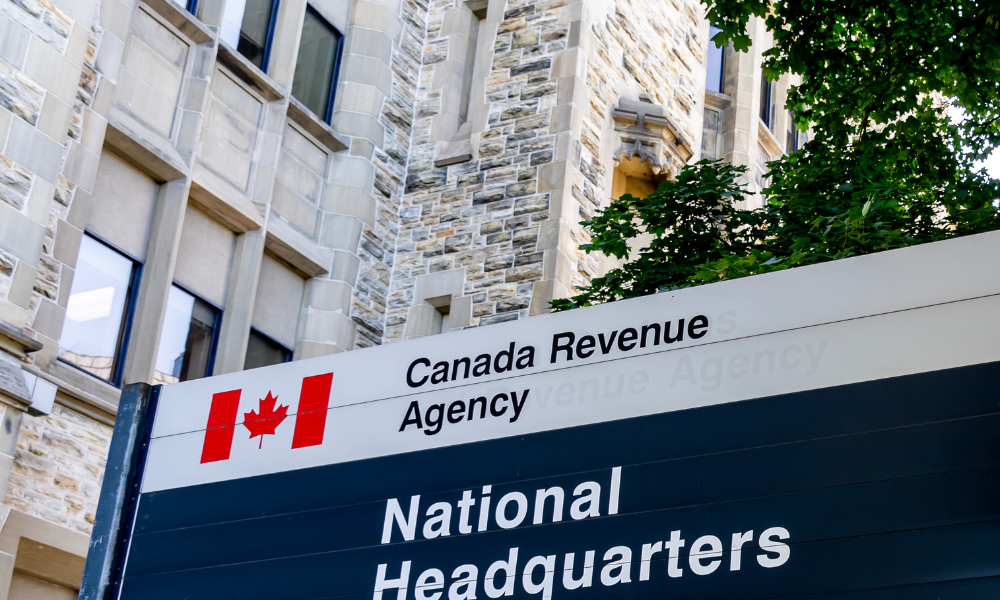Aboriginal law and constitutional law matters heard by Federal Court

The Federal Court of Appeal recently heard appeals from decisions of the Tax Court of Canada and the Canadian International Trade Tribunal. This week, the Federal Court’s lineup included the Qalipu Mi’kmaq First Nation Band class action.
Federal Court of Appeal
In Canadian Imperial Bank of Commerce v. His Majesty the King, A-30-22, the appellant bank filed a motion for judgment arguing that a 2019 Tax Court proceeding was res judicata and/or an abuse of process. The appellant said that the 2019 proceeding and the decision in President’s Choice Bank v The Queen, 2009 TCC 170 addressed the same supply the President’s Choice Bank provided to the Canadian Imperial Bank of Commerce.
Latest News
In January 2022, the Tax Court dismissed the motion for judgment. On appeal, the appellant argued that the motion judge should have ruled that the case satisfied the “same question” requirement of the doctrines of issue estoppel and abuse of process.
In Canadian Imperial Bank of Commerce v. His Majesty the King, A-161-22, the appellant bank challenged notices of assessment disallowing six rebate claims for goods and services tax/harmonized sales tax allegedly wrongly paid.
In July 2019, the Tax Court rejected this challenge. On appeal, the appellant claimed it was entitled to the GST/HST rebates. It sought a reversal of the Tax Court’s decision and referral to the Minister of National Revenue for reassessment.
In the two cases mentioned above, partners at Osler, Hoskin & Harcourt LLP – Alexander Cobb, Al Meghji, and Al-Nawaz Nanji – advised the appellant bank. Justine Malone and Lindsay Tohn, counsel at the federal justice department, appeared for the respondent, His Majesty the King.
The case of Canadian Hardwood Plywood and Veneer Association et al. v. Attorney General of Canada, A-84-21 arose from an inquiry of the Canadian International Trade Tribunal relating to certain decorative and other nonstructural plywood originating in or exported from China. The tribunal found that the dumping and subsidizing of this plywood did not injure or was not threatening to injure the domestic industry.
The applicants jointly filed a judicial review application under s. 96.1 of the Special Import Measures Act, 1985. They asked the appellate court to set aside the tribunal’s findings.
Partners at Conlin Bedard LLP – Paul Conlin, Benjamin Bedard, R. Benjamin Mills, M. Drew Tyler, and Anne-Marie Oatway – and counsel Shannon McSheffrey advised applicants Canadian Hardwood Plywood and Veneer Association, Columbia Forest Products, Rockshield Engineered Wood Products ULC, and Husky Plywood.
Lawyers at Borden Ladner Gervais LLP – Jesse Goldman, partner; Matthew Kronby, partner; and Jacob Mantle, senior associate – acted for respondents Canusa Wood Products Limited, Hardwoods Specialty Products LP, McCorry & Co. Ltd., and Panoply Wood Products Inc.
International trade lawyer Craig Logie and Affleck Greene McMurtry LLP partner Christopher Somerville represented respondents Unifor and United Steelworkers. Lastly, Riyaz Dattu of Arent Fox LLP assisted respondent Upper Canada Forest Product Ltd.
The issue in Uyi Jackson Obazughanmwen v. The Minister of Public Safety and Emergency Preparedness, A-207-21, was whether the respondent minister’s delegate under the Immigration and Refugee Protection Act (IRPA) could consider complex factual and legal questions, including the best interests of children and/or humanitarian and compassionate issues relating to a possible referral of a permanent resident under s. 37 of the IRPA to an admissibility hearing before the federal Immigration and Refugee Board’s immigration division.
Molly Joeck, an immigration and refugee lawyer at Edelmann & Co., advised the appellant. On the other hand, Edward Burnet and Robert Gibson of the federal justice department appeared for the respondent minister.
Federal Court
The case of Gregory Charles Collins v. Attorney General of Canada et al., T-2044-19 is also known as the Qalipu Mi’kmaq First Nation Band class action. The class proceeding alleged that establishing and implementing the July 2013 Supplemental Agreement for the Recognition of the Qalipu Mi’kmaq Band was unlawful.
Lawyers at Koskie Minsky LLP – David Rosenfeld, partner; Sue Tan, associate; and Caitlin Leach, associate – represented the plaintiff. Cox & Palmer partner Stephen May and Goodland Buckingham lawyer Philip Buckingham advised the defendant, the Federation of Newfoundland Indians.
Counsel at Canada’s justice department – Gregory Tzemenakis, Julie Chung, Craig Collins-Williams, Travis Henderson, Heather Thompson, Sarah Jane Howard, and Sarah-Dawn Norris – made appearances for the other defendant, the federal attorney general.
The case of Canadian Constitution Foundation v. Attorney General of Canada, T-347-22, concerned a judicial review application seeking to quash the following as unlawful and/or unconstitutional:
- the Proclamation Declaring a Public Order Emergency, SOR/2022-20, made under s. 17(1) of the Emergencies Act, 1985
- the Emergency Measures Regulations, P.C. 2022-107, SOR/2022-21, made under s. 19(1) of the Emergencies Act
- the Emergency Economic Measures Order, P.C. 2022-108, SOR/2022-22, also made under s. 19(1) of the Emergencies Act
Constitutional lawyer Sujit Choudhry and Goddard & Shanmuganathan LLP partner Janani Shanmuganathan represented the applicant Canadian Constitution Foundation. Counsel at the federal justice department – Christopher Rupar, Jeff Anderson, John Provart, Kathleen Kohlman, Nathan Joyal, David Aaron, and Meenu Ahluwalia – appeared for the respondent, Canada’s attorney general.






